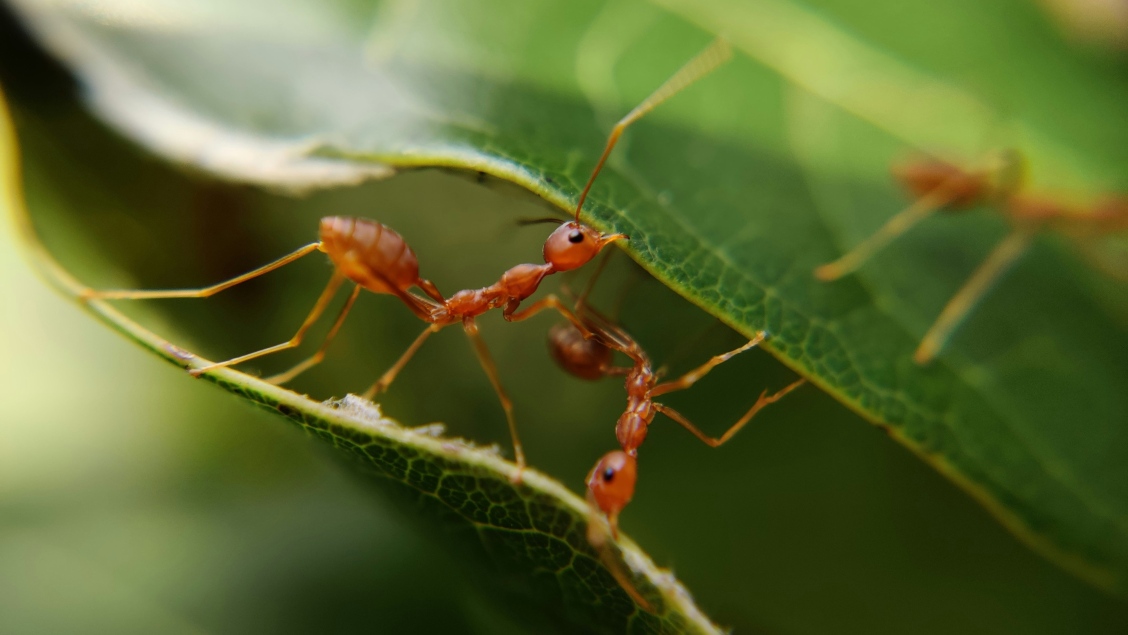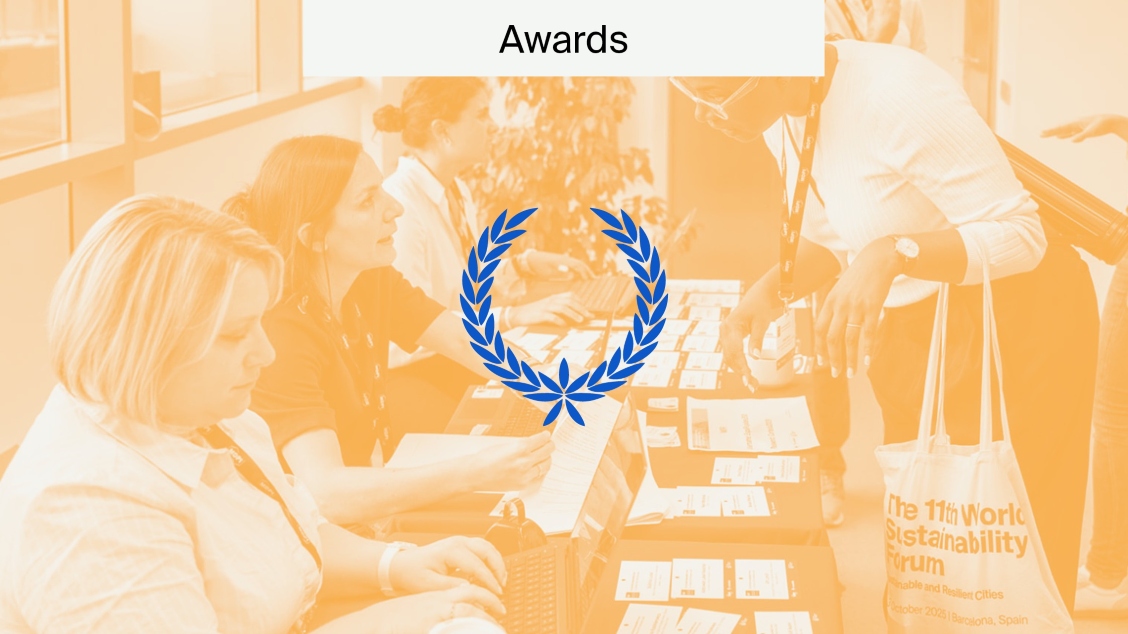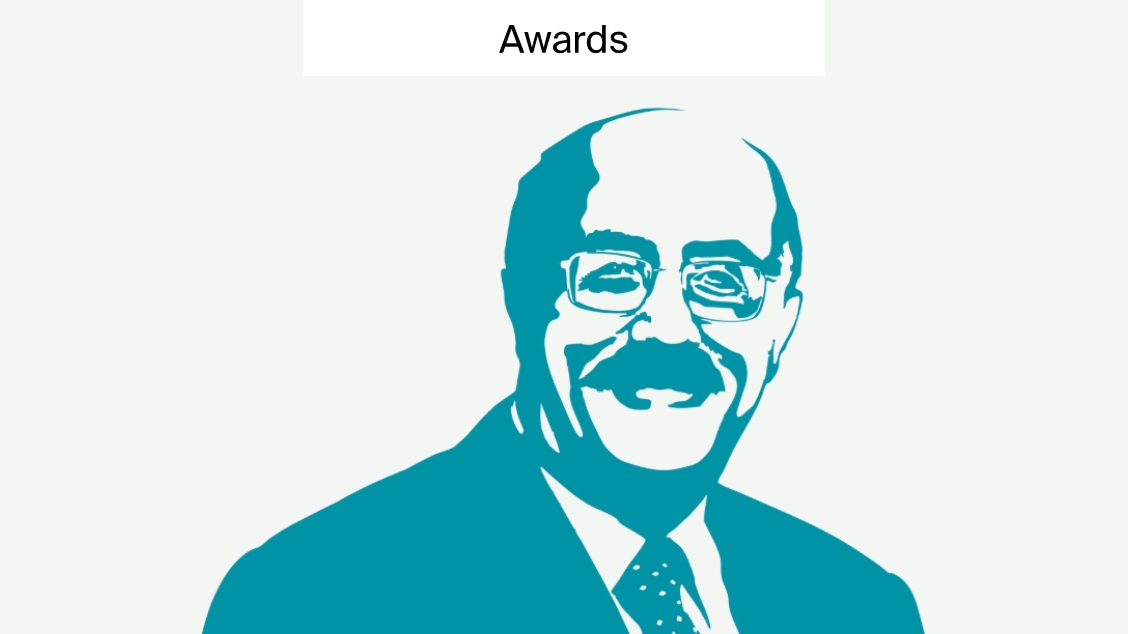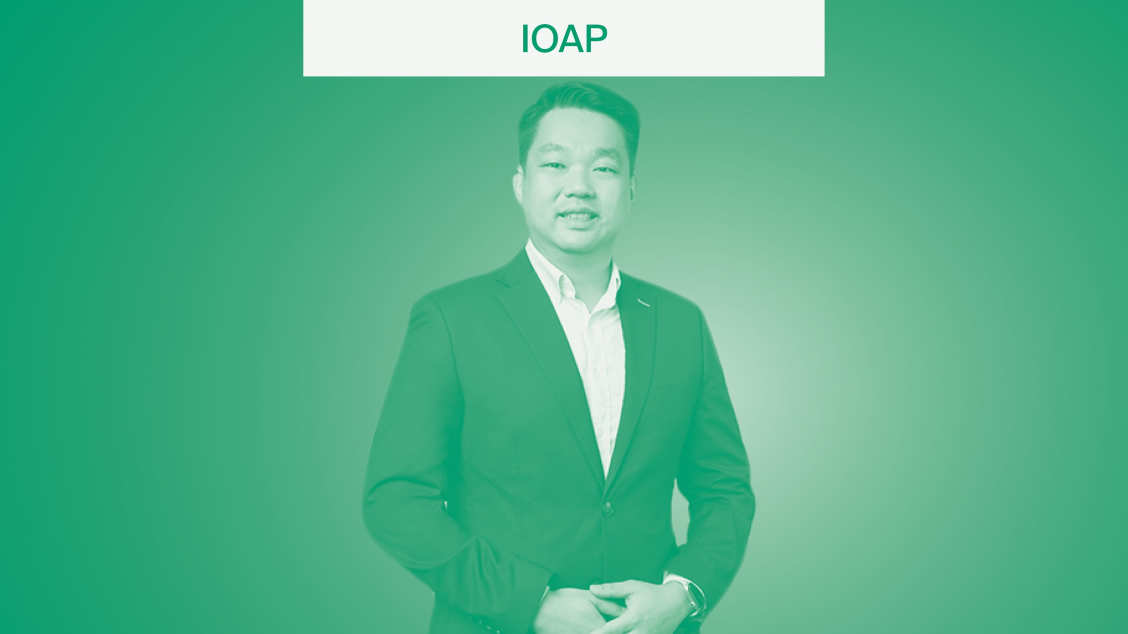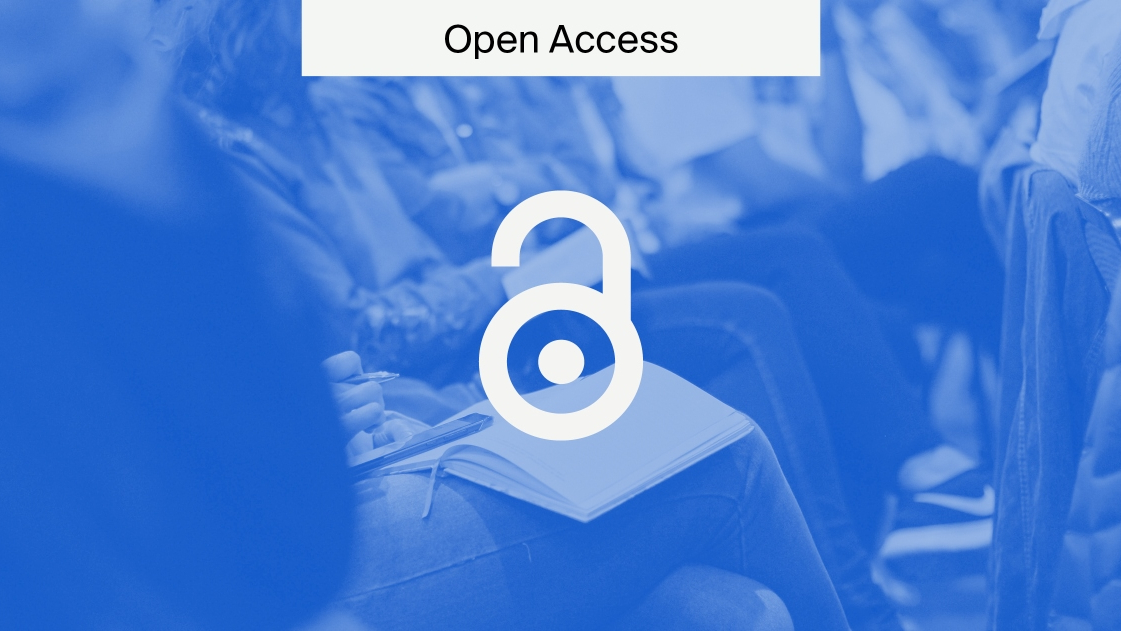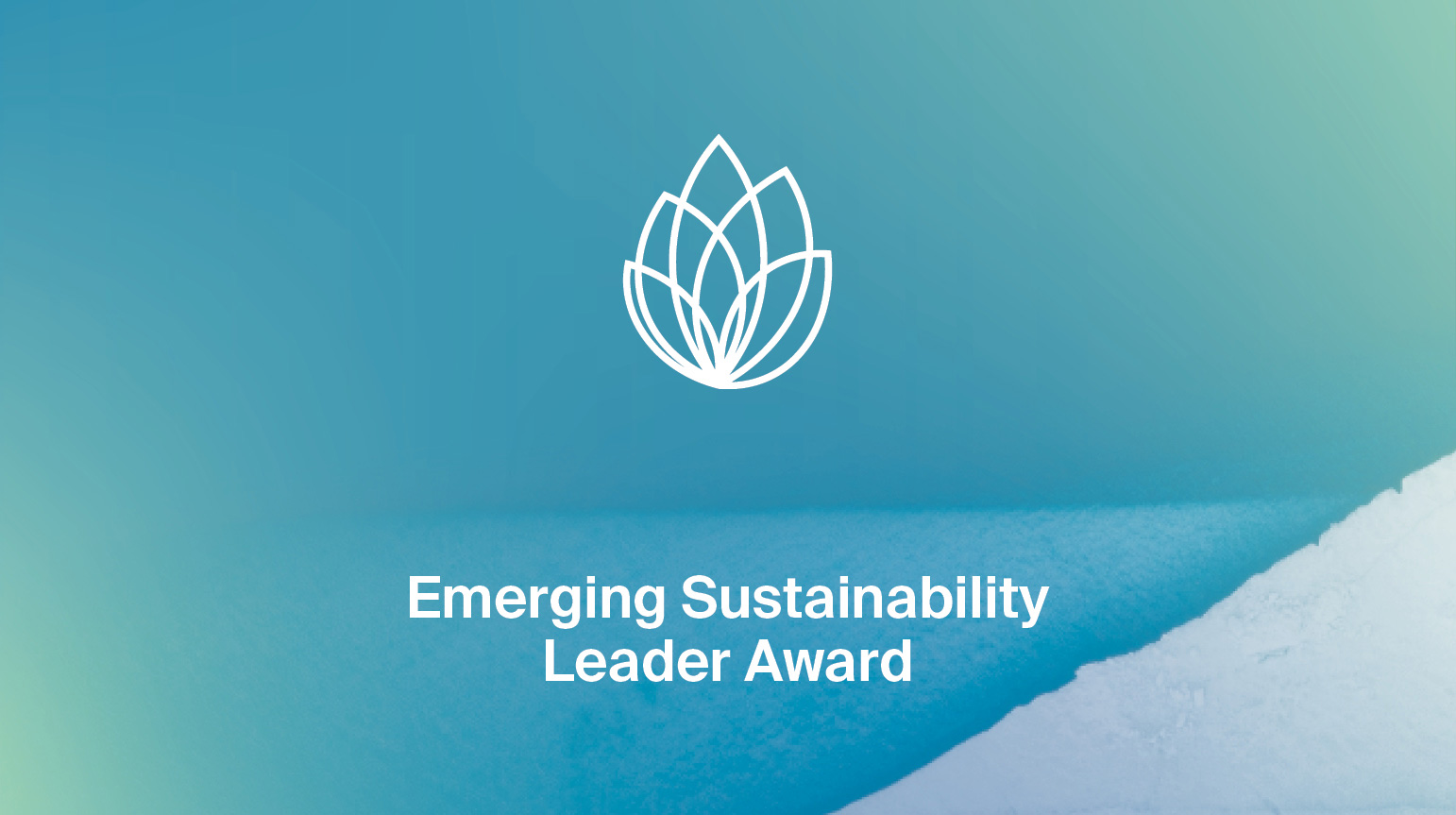
2023 Emerging Sustainability Leader Award Finalists
The 2023 Emerging Sustainability Leader Award winner will be announced during the 10th World Sustainability Forum.
During the Award Ceremony, the finalists will pitch a presentation focused on their work. After this, judges will decide whether they will receive either the 1st place award or the runner-up titles.
Here, we’ll explore the work of the three finalists—Dr Kamranzad, Dr Kim and Dr Lohmann—showcasing just some of the achievements that have earned them a nomination for this year’s Emerging Sustainability Leader Award.

Dr Bahareh Kamranzad is currently a Chancellor’s Fellow in the Department of Civil and Environmental Engineering at the University of Strathclyde.
Her research interests include coastal engineering and ocean climate. The scope of her work is international, and it meets multiple dimensions of the Sustainable Development Goals.
Speaking on the inspiration behind her research, Dr Kamranzad had the following to say:
“My fascination with ocean renewable energy began as I embarked on my PhD journey, following my completion of a master’s degree where I worked on both numerical and soft computing methods, including AI, for ocean wave modelling. My research evolved to concentrate on the application of wave modelling, specifically in the areas of ocean renewable energy, extreme wave conditions, and wave forecasting.”
The importance of ocean forecasting
Ocean forecasting is crucial for “a wide range of applications, such as marine operations, the accessibility and availability of ocean renewables, and recreational activities.”
AI in ocean forecasting
The approach of integrating AI into ocean forecasting reduces costs and increases accuracy. Dr Kamranzad notes that it involves “utilizing soft computing methods and Artificial Intelligence (AI) to accelerate performance, which works based on developing a relationship between various ocean parameters that influence wave development, propagation, and transformation.”
Challenges and benefits
Data acquisition in ocean forecasting presents a challenge. High-quality data are difficult to capture when relying on observation, in situ techniques, or altimetry.
This is because “these sources deliver ocean data in varying spatial and temporal resolutions that may neither encompass the intended location for deploying the forecast models nor provide the necessary temporal resolution for the data”.
Instead, Dr Kamranzad notes, “by utilizing AI, it is possible to bridge these spatio-temporal gaps, effectively filling in the missing information. This ability highlights the versatility and potential of AI in enhancing the accuracy and reliability of ocean forecasting, even when confronted with the inherent limitations of available data.”
AI therefore presents the benefit of greater accuracy while filling existing gaps. Furthermore, “it can be tuned with learning algorithms, making it a viable option for accurate, faster, and more cost-effective ocean forecasting.”
Advancing research
At the University of Strathclyde, Dr. Kamranzad has contributed to the establishment of a multi-disciplinary Centre for Doctoral Training (CDT), “AI-Based Ocean Forecasts for Marine Operation (mArIneCAST)”.
Dr Kamranzad notes that mArIneCAST will “advance research in the three areas of ‘Artificial Intelligence’, ‘Ocean Forecasts’, and ‘Marine Operations’ and aims to provide successful studentship projects and broaden national and international collaboration with both academic and industrial partners.”
Meeting the Sustainable Development Goals
The Sustainable Development Goals are at the core of Dr Kamranzad’s work, which synthesizes the “three critical areas” of “climate change, ocean renewable energy, and coastal protection”.
Dr Kamranzad notes that this “integration aligns with Sustainable Development Goals (SDGs) #7: Affordable and Clean Energy, #9: Industry, innovation and infrastructure, #11: Sustainable cities and communities, #13: Climate Action, #14: Life Below Water and #15: Life on land.”
Emerging Sustainability Leader Award
Speaking on the value of this year’s nomination, Dr Kamranzad expresses the importance of opportunities like the Emerging Sustainability Leader Award for researchers.
“This award, along with the opportunity to engage with a broader community and learn from valuable research in the field of sustainability, will empower me to broaden my expertise. It will enable me to shift the emphasis of my research towards a multi-disciplinary project where various sustainability aspects are examined in order to minimize uncertainties with future planning in a changing climate.
This nomination stands as a potent reminder of our collective responsibility to persevere in our pursuit of a more sustainable future. It reaffirms the necessity of innovative thinking and collaboration across disciplines to meet the complex challenges that lie ahead.”
Dr Kamranzad concluded:
“Additionally, I wish to extend my heartfelt thanks to those who have supported and inspired me throughout this journey. Their encouragement has been crucial in shaping my path and driving my endeavours forward.”
Dr. Youjin Kim specializes in sustainable technologies and product acceptance—she meets the social, economic, and environmental dimensions of the Sustainable Development Goals in her work.
Currently, she is a lecturer (part-time) of Energy and Environmental Engineering at the Catholic University of Korea (CUK) and School of Science and Engineering in JeonBuk National University (JBNU). She also has her own business, ‘Ecofluid’.
Her research focuses on blade airfoil optimization, rotor 3D rotational augmentation modeling, and advanced computational fluid mechanics (CFD) in wind energy and environmental engineering.
Developing an interest in sustainable technologies
Dr Kim describes how her interest in the field began:
“When I was a kid, my home was close to the docks. My grandfather loved to show me the anchored ships, thrilling my young heart with nature and technology. It was natural for me to have a passion for sustainable technologies.”
Her father Prof. Delgado, a doctor, “recommended studying wind turbines at the Institute of Fluid Mechanics, FAU. Our institution’s Industry‒University projects expanded my interest in the application of knowledge in education and business.”
Since then, Dr Kim has worked to develop sustainable technologies and to strengthen the acceptance of sustainable products.
Supporting sustainability through startups
Dr Kim’s promotion of sustainable practices is evident in both her research career and in her interaction with new businesses. She describes this process in her own words:
“‘EcoFluid’ is my private business, with a plan to grow. It was encouraged by the Impact Climate Fellowship Program at Korean VC Sopoong.
In the program, I met people working on projects such as UV-LED sterilizer production and an eco-friendly vermin repeller. I simulated CFD to visualize the fluid flow of the devices to validate their products. In total, 4300 units of the rotor vermin repellers were sold with c.a. 67,000 USD revenue. They replace the conventional chemical repeller, which harms farmland ecosystems.
I believe the client’s acceptance of the wind turbine-shaped repeller could potentially lead to the social acceptance of wind turbine projects in Korea.”
Increasing the acceptance of sustainable technologies
Increasing the social acceptance of sustainable products is pivotal to their wide-scale adoption.
Dr Kim highlights this challenge: “social acceptance of sustainable technologies is not high enough. If we want to launch projects in the market with a higher recognition of sustainability, then we need to modify the solution to be more appropriate. It needs greater funds.”
Dr Kim’s work will, therefore, continue to focus on finding ways to increase acceptance for sustainable technologies and solutions.
She aims “to encourage sustainable mindsets in people and society”, noting that, from her perspective, “university students are the potential power of a sustainable future.” Thus, her lectures will continue to “foster an understanding of sustainability, upgrading conventional subjects into more eco-friendly content.”
Future projects
Dr Kim is also engaged in research that looks to better support renewable energy production in city buildings in order to create low-carbon cities.
Sustainable Real Estate Platform
One of Dr Kim’s upcoming projects is the Sustainable Real Estate Platform. Speaking about the project, Dr Kim states that it “visualizes the environmental elements of the buildings in the transaction. It is based on big data and artificial intelligence, which foster the volume of business based on the CO2 index.”
Working with real estate companies, Dr Kim will be using innovative technologies to reduce the carbon footprint of large cities, which will hopefully be translatable worldwide.
Emerging Sustainability Leader Award
Dr Kim will be speaking about her work in greater detail at the 10th World Sustainability Forum in September. For now, here are a few words on what the Emerging Sustainability Award can mean for researchers pursuing sustainable research aims.
“The ESLA award encourages me and my team to keep working to promote eco-friendly minds in the market, hopefully transforming our society to become more sustainable.”
Dr. Julia Lohmann is a leader in Education for Sustainable Development (ESD) in sport and physical education (PE).
She is currently a Research Associate, Chair of Sport Pedagogy, University of Augsburg, and a leading member of Sportainable, a thinktank that promotes sustainable development in sports.
Education for sustainable development
Education for Sustainable development is described by Dr Lohmann as a way to empower learners to “acquire knowledge, values, and attitudes that enable them to recognize unsustainable developments and contribute to shaping sustainable futures.”
Education for sustainable development in the classroom
Dr Lohmann illustrates the ways that physical education teaching, sustainability, and ideas around sustainable management are seamlessly integrated into her teaching methods in this description of a seminar:
“We organized a football tournament at a local school in which pupils explored the theme of responsibility in football from various perspectives: In the tournament, the focus was on playing responsibly and fairly.
In addition to the tournament, pupils learned about socially and environmentally responsible consumption (e.g., jerseys, balls) and developed ideas for socially and environmentally responsible management in professional football. The latter took place in cooperation with the local professional football club.”
Teaching methods that prioritize responsible practices help to illustrate the important links that are vital to sustainable sports.
As highlighted by Dr Lohmann, this project brought together “future PE teachers (designing education with focus on sustainability issues), pupils (acquiring sustainability competencies), and to a certain extent also club football (reflecting on sustainable management strategies).”
Human-nature interactions in outdoor sports
Dr Lohmann’s work aims to prioritize the relationship we form with nature in outdoor sports settings.
“For us (as humans) to engage in outdoor sports in the long term, we need to address (positive and problematic) human‒nature interactions.”
Dr Lohmann also works as an instructor of outdoor sports, contributing to the development of ESD in PE in different ways, actively integrating theory and practice.
Current projects
In her work, Dr Lohmann aims to “shift the focus from individual contributions to sustainable development towards exploring structural possibilities. This involves asking how structures (in and around sports) can be designed to make sustainable choices easier for individuals.”
Collaboration and digital technologies
She also shared details about two upcoming projects:
“A topic that I will be focusing on in the near future is active mobility, especially in the context of schools. We are currently working on a project proposal as a transdisciplinary team (including scientists, city administration, teachers), with the aim of promoting ‘healthy and sustainable mobility’ (cycling) in schools within the city.”
The second project involves “finding ways to make personalized, timely, and regionally tailored educational and guidance measures accessible to outdoor sports enthusiasts through digital apps. The goal is to prevent social conflicts and preserve ecologically valuable niches that are important for biodiversity in areas frequently (over-)used for outdoor sports.”
Sportainable
As part of the thinktank Sportainable, Dr Lohmann is engaged in “various projects aimed at progressively making organized and informal sports more sustainable”.
The team organizes events that involve stakeholders in the field, providing a place for ideas to be exchanged in order to develop a sustainable future for sports.
These events, Dr Lohmann emphasizes, bring together “individuals from academia, business, organized sports, and sports policy.”
Meeting the Sustainable Development Goals
Dr Lohmann’s work in sports education promotes inclusion, which meets the social dimension of the SDGs, as well as sustainable choices and environmentally friendly behaviors, meeting the ecological dimension.
Working with stakeholders to review management practices also meets the economic dimensions of the SDGs, making this field a critical one.
Emerging Sustainability Leader Award
Researchers like Dr Lohmann are promoting sustainable futures, which the Emerging Sustainability Award aims to celebrate.
Speaking on her work and the significance of this award, Dr Lohmann had the following to say:
“Sports can be a crucial player in sustainable development, but there is still much to be done to fully harness its potential.
The award is a significant opportunity to demonstrate the relevance of sports in the context of sustainable development. The award also provides me with the chance to leverage specific opportunities to initiate the intended projects.”
Dr Lohmann concluded:
“I would like to thank Prof. Dr. Brandl-Bredenbeck for suggesting me for this award; thanks also go to my student assistants at university, to the Sportainable team, the “ESD girls” – this award will also serve as a recognition for collaborative commitment to ESD and sustainability in sports and physical education.
Special thanks go to my family – for support in everyday life!”
10th World Sustainability Forum
Dr Kamranzad, Dr Kim and Dr Lohmann will be speaking on their work in the upcoming 10th World Sustainability Forum.
You can join us to celebrate their achievements during the 24-hour hybrid event taking place on 14th September 2023 and find out who has won this year’s award. To do so, you will need to register for WSF2023.
To find out more about the World Sustainability Forum hosted by the journal Sustainability and the MDPI Sustainability Foundation, you can head over to the website now.








